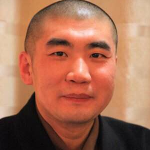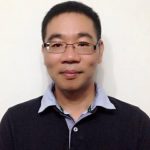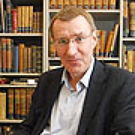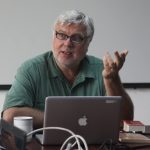Click here to return to the 2018 Cambridge intensive program page.
| Jinhua Chen (UBC): What Was Moved (and Removed) from Stone to Paper?: Close Reading of Monastic Biographies with their Epigraphical Originals (Segment 1)
|
Jinhua Chen is Professor of East Asian intellectual history (particularly religions) at the University of British Columbia, where he also served as the Canada Research Chair in East Asian Buddhism (2001-2011). He additionally held short-term teaching positions at other universities including the University of Virginia (2000-2001), the University of Tokyo (2003-04), and Stanford University (2012).As recipient of research grants and fellowships from different sources including Social Sciences and Humanities Research Council of Canada (SSHRC), Canada Research Chairs (CRC) Program, Killam Foundation, Peter Wall Institute for the Advanced Studies, Society for the Promotion of Buddhism (Bukkyō Dendō Kyōkai [BDK]), Japan Society for the Promotion of Social Sciences (JSPS), Alexander von Humboldt Foundation and the Max Plank Institute, the Academy of Korean Studies, and most recently, the National Humanities Center (USA), he has been engaged in research projects related to East Asian state-church relationships, monastic (hagio/)biographical literature, Buddhist sacred sites, relic veneration, Buddhism and technological innovation in medieval China, and Buddhist translations. In addition to publishing five monographs, including (1). Making and Remaking History (Tokyo, 1999), (2). Monks and Monarchs, Kinship and Kingship (Kyoto, 2002), (3). Philosopher, Practitioner, Politician: The Many Lives of Fazang [643-712] (Leiden, 2007), 4. Legend and Legitimation: The Formation of Tendai Esoteric Buddhism (Brussels, 2009), and (5). Crossfire: Shingon-Tendai strife as seen in two twelfth-century polemics (Tokyo, 2010), he has also co-edited five books. He is also the author of over fifty book chapters and journal articles, with major academic journals such as Asia Major, Bulletin of the School of Oriental and African Studies, Harvard Journal of Asiatic Studies, History of Religions, Journal Asiatique, Journal of Asian History, Journal of Chinese Religions, Journal of the American Oriental Society, Journal of the International Association of Buddhist Studies, Journal of the Royal Asiatic Society, and T’oung P’ao: Revue internationale de sinologie. Several of his forthcoming books include one on medieval Chinese monastic warfare, another on Buddhism and Daoism’s politico-economical roles in early eighth century, and finally an annotated English translation (with an extended Introduction) of the complete works of the 9-10th century Korean literary luminary Choe Chiwon 崔致遠. |
| Michael Friedrich (Hamburg): Mādhyamika and Daoism in Early Medieval China (Segment 1)
|
Professor Friedrich’s is a Professor in the Numata Center for Buddhist Studies. His main fields of research include Chinese Buddhism in the context of Chinese intellectual history, in particular the formative period up to the 6th century, and the historiography of Chinese Buddhism in modern and contemporary China. He also advises several M.A. and Ph.D. projects and is head of the SFB 950 “Manuskriptkulturen in Asien, Afrika und Europa”. |
| Imre Galambos (Cambridge): Stories and Manuscripts between East and West (Segment 2)
|
After having studied for several years in China (Tianjin) and Hungary, Imre Galambos received his Ph.D. from UC Berkeley with a dissertation on the orthography of Chinese writing during the Warring States period. Following his graduation he started working for the International Dunhuang Project at the British Library and became involved in the study of Dunhuang manuscripts and the manuscript culture of medieval China in general. After 10 years at the British Library, he moved to Cambridge in 2012. |
| Leonard van ter Kuijp (Harvard): The Transfer of Buddhism from India to Tibet and Its Transformation (Segment 2)
|
Leonard W.J. van der Kuijp is a Dutch-born Canadian and Professor of Tibetan and Himalayan Studies in the departments of South Asian Studies and East Asian Languages and Civilizations, Harvard University. He completed his BA and MA degrees at the University of Saskatchewan, Canada, and his D.Phil. at the University of Hamburg, Germany. He was Deputy Director of the Nepal-German Manuscript Preservation Project in Kathmandu, Nepal (1980-1985) and taught at the Free University, Berlin, Germany (1985-1987) and at the University of Washington, Seattle, USA (1987-1995). He was the recipient of a MacArthur Fellowship (1993-1997), a Guggenheim Fellowship (2016), was President of the Board of the Tibetan Buddhist Research Center (1999-2017), and is a foreign member of the Royal Netherlands Academy of Arts and Sciences (2018). His areas of research and publication include Indo-Tibetan Buddhist intellectual history, early Sino-Tibetan and Tibetan-Mongol relations, and Tibetan history. He lives in Littleton, MA, with his cellist-wife Dr. Ning Tien. |
| Stefano Zacchetti (Oxford): Early Chinese Buddhist Translations and Commentaries (Segment 2)
|
Stefano Zacchetti’s research interests include early Chinese Buddhist translations (2nd-5th centuries CE), Mahāyāna literature in Sanskrit and Chinese, the history of the Chinese Buddhist Canon, and Chinese Buddhism (particularly early Chinese Buddhist commentaries). |
Ru Zhan (PekingU): Buddhist Cave Arts: From Ayutthaya to Dunhuang (Segment 1) |
Zhan Ru is a Professor in Peking University’s School of Foreign Languages. Additionally, he is a member of the Chinese People’s Political Consultative Conference (CPPCC) National Committee, Vice President of the Buddhist Association of China and Vice President of the Peking University Orientalism Research Institute. His areas of research include: Buddhist and Buddhist literature, the Indian Ministry of Buddhism, Dunhuang Buddhism, Buddhist system |





